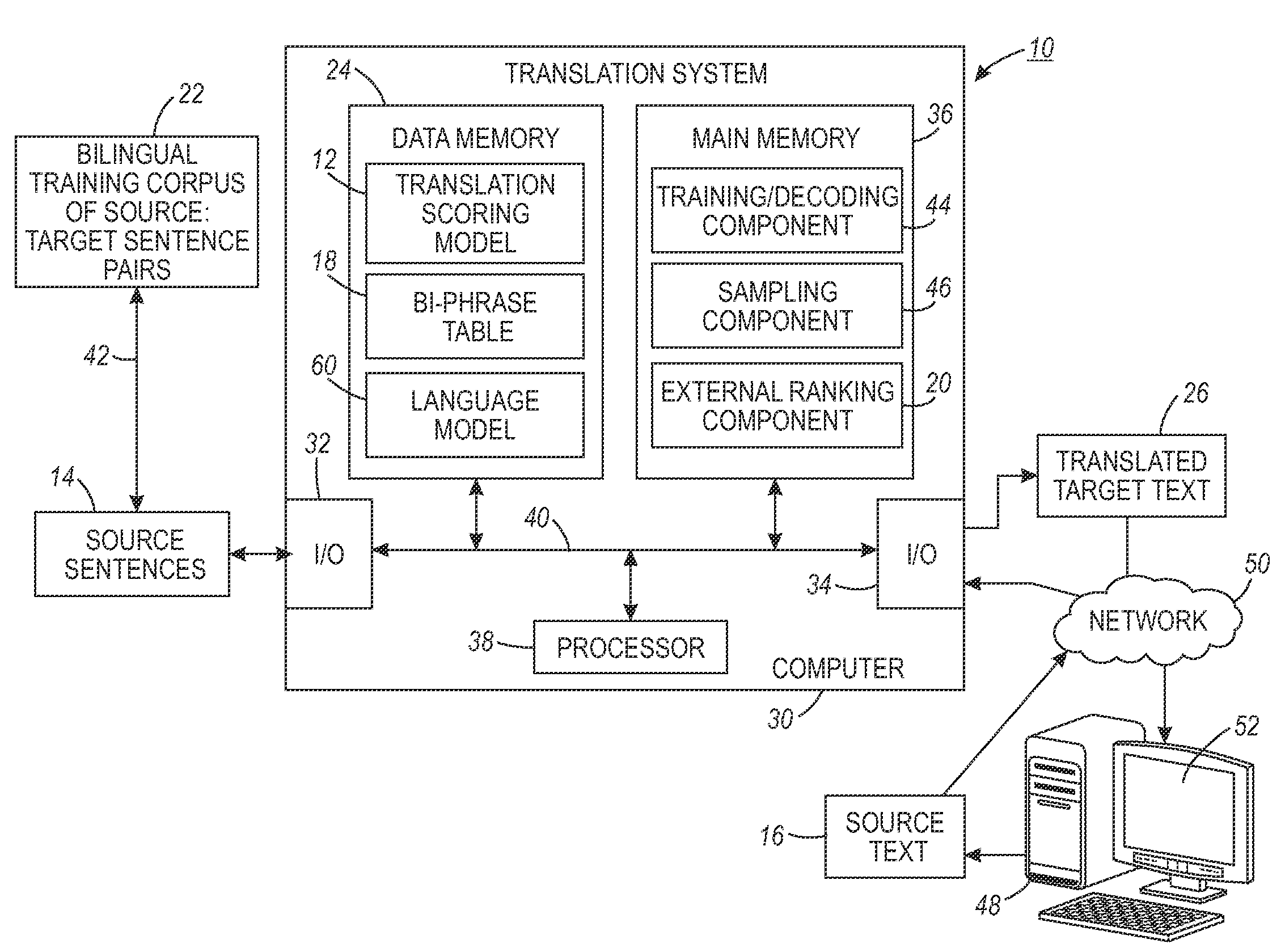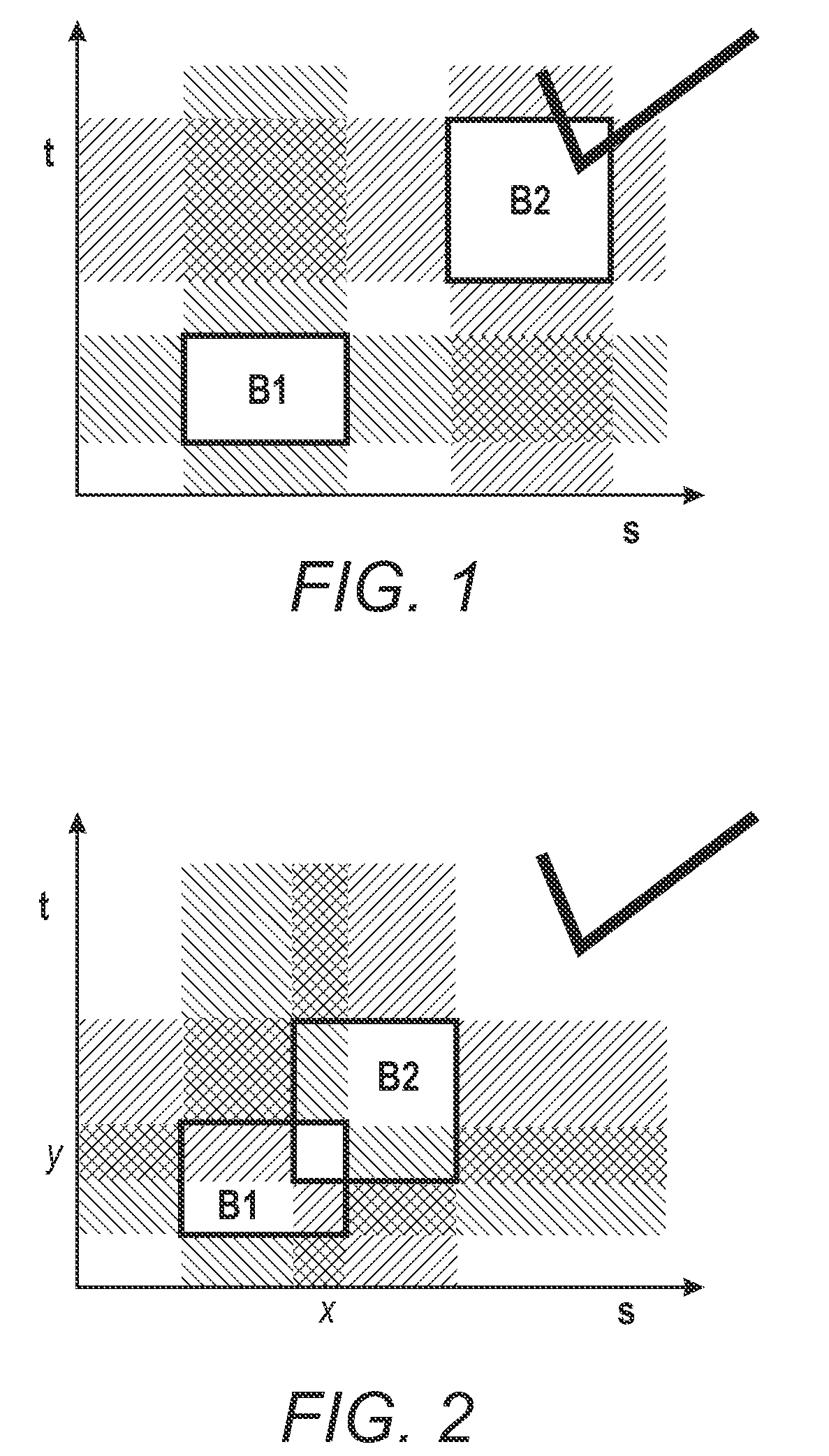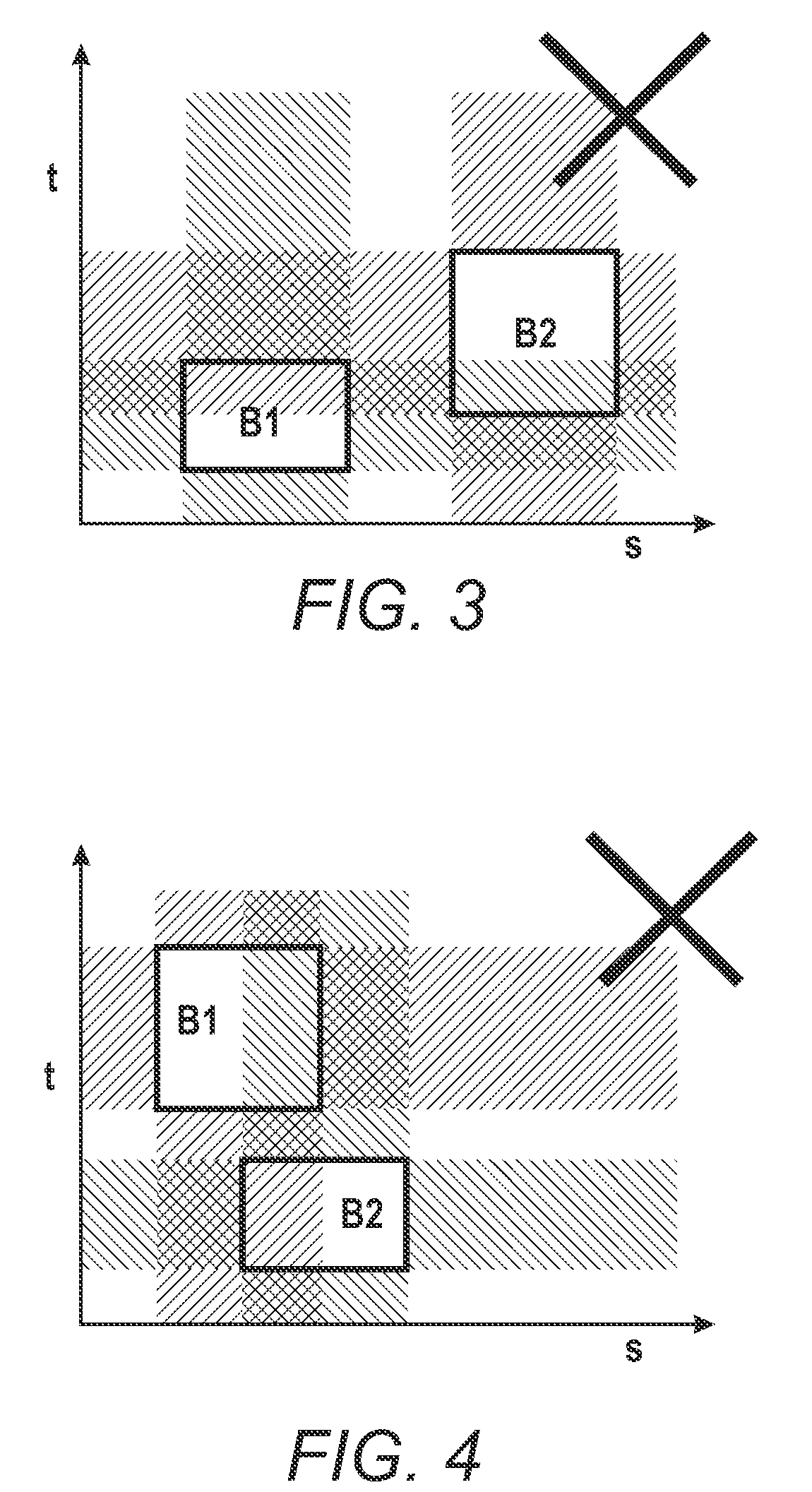Machine translation using overlapping biphrase alignments and sampling
a machine translation and biphrase technology, applied in the field of machine translation, can solve the problems of decoding np-complete, inability to quickly solve, and limited short-range markov assumptions corresponding to capture all dependencies of interes
- Summary
- Abstract
- Description
- Claims
- Application Information
AI Technical Summary
Benefits of technology
Problems solved by technology
Method used
Image
Examples
example
[0120]The WMT08-Europarl training set is used for the heuristic extraction of biphrases, the corresponding development set for estimating the feature weights (training), and 250 sentences of the test set for evaluation (decoding). The model is trained using SampleRank with averaged perceptron. The training sampling is run for 1000 iterations (corresponding to about 100,000 proposals per sentence).
[0121]Decoding with trained model 12 is performed in an annealing setup, i.e. the model probability P(t|x) used for sampling the next successive translation is taken to an exponent resulting in
[0122]P(t❘s)1α
with the factor α decreasing over time according to a rate factor. α is initially set to 100 and the rate factor to 0.9, i.e., α is multiplied by 0.9 for the next and each subsequent iteration. It is observed that after about 50 iterations (5000 translation neighbor proposals), the objective score oscillates around the same value and the algorithm can be stopped. Evaluation is done on t...
PUM
 Login to View More
Login to View More Abstract
Description
Claims
Application Information
 Login to View More
Login to View More - R&D
- Intellectual Property
- Life Sciences
- Materials
- Tech Scout
- Unparalleled Data Quality
- Higher Quality Content
- 60% Fewer Hallucinations
Browse by: Latest US Patents, China's latest patents, Technical Efficacy Thesaurus, Application Domain, Technology Topic, Popular Technical Reports.
© 2025 PatSnap. All rights reserved.Legal|Privacy policy|Modern Slavery Act Transparency Statement|Sitemap|About US| Contact US: help@patsnap.com



